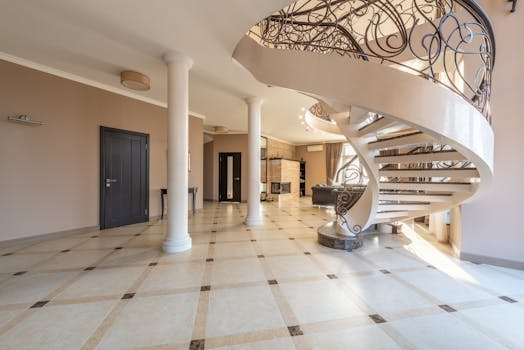Mansion Taxes and Luxury Market Shifts: Who Pays the Price?
The luxury real estate market is constantly evolving and shifting, with new trends and regulations impacting buyers, sellers, and investors. Recently, one of the most talked-about changes in the luxury market has been the introduction of mansion taxes. These taxes, also known as transfer taxes or conveyance taxes, are additional fees imposed on the sale or transfer of high-value properties. As the name suggests, they are primarily aimed at mansions and other luxury homes, and have sparked debates about who ultimately bears the burden of these taxes. In this article, we’ll delve deeper into the world of mansion taxes and explore how they are impacting the luxury market, and who is really paying the price for these changes. 
The Rise of Mansion Taxes
Mansion taxes are not a new concept, but they have gained more attention in recent years as cities and states look for ways to increase revenue. The idea behind mansion taxes is simple: the more expensive the property, the higher the tax rate. This means that luxury homes, typically defined as those with a price tag of $1 million or more, are subject to higher transfer taxes than regular homes. In some cases, these taxes can amount to hundreds of thousands of dollars, making them a significant expense for buyers and sellers alike.
The Impact on Buyers
It’s no secret that luxury homes come with a hefty price tag, and the addition of mansion taxes only adds to the cost. For buyers, this can mean paying hundreds of thousands of dollars in additional taxes, which can have a significant impact on their purchasing power. In some cases, these taxes may even make some properties unaffordable for buyers, forcing them to look at more affordable options. This shift in buying behavior can have a ripple effect on the luxury market, with sellers having to adjust their prices to attract buyers who are now more budget-conscious.
The Effects on Sellers
On the other hand, sellers are also feeling the effects of mansion taxes. These additional fees can significantly decrease their profits, especially if they have to lower their asking price to attract buyers. In some cases, sellers may even have to shoulder part of the tax burden to close a deal, further reducing their profits. For those looking to sell their luxury properties, the introduction of mansion taxes has added another consideration to their financial planning.
Who is Paying the Price?
So, who ultimately pays the price for these mansion taxes? The answer is not as straightforward as it may seem. While buyers and sellers are the ones directly affected by these taxes, the impact can also be felt by others in the luxury market. For example, real estate agents may have to adjust their commission rates to account for the additional taxes, and lenders may have to reassess their lending criteria for high-value properties. The ripple effect can even extend to the contractors and service providers who work on these luxury homes, as taxes may eat into their profits as well.
The Shift in the Luxury Market
It’s safe to say that the introduction of mansion taxes has had a significant impact on the luxury market. In some cases, it has slowed down sales as buyers and sellers recalibrate their expectations and budgets. However, it has also led to a more cautious and strategic approach to luxury real estate investing. With higher taxes on the line, buyers are taking more time to evaluate their purchases, and sellers are pricing their properties more strategically. This shift in the luxury market ultimately benefits both parties, ensuring that properties are bought and sold at their true market value.
In Summary
Mansion taxes have caused quite a stir in the luxury real estate market, and their impact is not limited to buyers and sellers. From real estate agents to contractors, everyone involved in the luxury market is feeling the effects of these additional fees. However, while these taxes may add to the cost of buying and selling luxury homes, they have also brought a new level of diligence and strategy to the market. As the luxury market continues to evolve, it’s essential to keep an eye on changes like mansion taxes and their impact on the industry as a whole.







